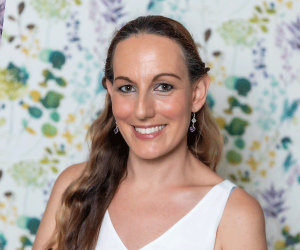
Sense of Self
Sense of Self
By Dr Kaya in collaboration with the Therapy House team.

Sense of Self
In my work as a psychologist, I am fortunate to work with both adults and children. I find this gives me a unique insight to understand the impact of childhood experiences on young people long term.
A common difficulty that adults often present with is a negative sense of self. This can present itself in varying ways, sometimes anxiety, sometimes low mood, constantly seeking approval from others, burnout from trying to do enough to feel ‘good enough’, or withdrawal from others in fear of expected rejection.
This work makes me particularly passionate about trying to support children and teenagers to develop a positive sense of self to help buffer them from this possibility of entering adulthood with a negative self-concept.
While it can be difficult to control to what happens for children and young people outside of the home, like navigating friendship difficulties and possible bullying which may impact their developing sense of self, parents and caregivers have such an amazing opportunity to be able to support their children to develop a positive self-concept which can help buffer from these external influences and help to develop a sense of resilience over time.
A child’s relationship with their parents, or other primary caregivers, is the first relationship they have and therefore becomes a blueprint in how they perceive others, and importantly, themselves. Responses that children receive from their caregivers are like a mirror which tell the child how others perceive them. Essentially, the words and reactions that parents give their children becomes the child’s inner voice.
The problem with this process is that there are many well-intentioned and loving parents who may accidentally give their children the message that they don’t do things well or aren’t enjoyable to be around.
From neurobiology and relationship-based research, we have learnt a few key facts. Firstly, we know that a person needs 4-5 instances of positive feedback to cancel out the negative effect of 1 instance of perceived criticism or rejection on our sense of self and connection to others.
The reason that we are so sensitive this this feedback is because we are biologically wired to stay safe from danger and stay connected to a group. Thus, to stay connected to a group and stay safe, our brains are wired to scan for and respond to threats – which include disconnect from others and then reflecting on times we have disappointed others. From a biological perspective, this is part of the link between relationship difficulties, anxiety and depression.
So how can this knowledge help us to strengthen our relationships with our children and boost their developing sense of self?
Many adults who seek therapy did not come from overtly abuse families or experienced trauma in childhood. A component of their difficulties often can be related to the way that they received feedback as a child.
Well-intentioned and proactive parents often want to ensure that their children learn appropriate social skills, become hard-workers and be contributing members of society and these are good traits to support. However, how these messages and support is given to children to develop these traits makes all the difference.
Children of course need feedback when they break a rule or boundary or need support to develop skills as mentioned above and doing so does not automatically mean that a parent’s comments will automatically be perceived as criticism.
Consider the scenario below.
A parent notices their 7-year old boy push over their little sister in dispute for a toy….again. When the parent comes to intervene they say, “Why are you being such a bully again? No one will want to be your friend if you keep acting like this. Just go to your room, I can’t look at you right now”.
I am sure that the parent’s intent in this situation would be based in love and concern that their child may never have friends and not get along well with others, as well as worry for their other child that they got hurt and wanting to teach that using physical behaviour is not a way to solve problems. However, an opportunity to connect and teach the child the skills needed to promote this was lost and overshadowed by a message that the child is unlikable and a disappointment to their parent.
When a child messes up there is an opportunity to connect with them, let them know they are lovable even if they make a mistake and teach them how to approach things differently next time. Of course, if a child is very upset and dysregulated they will need support to regulate before they will be able to take in any new skills.
In the above scenario, there is an opportunity to teach regulation, reading cues, repair and problem solving. For example, providing an emotional narrative could be a first step.
“I can see you both wanted the toy and brother you were upset that your sister had it first. You pushed her and that made her sad and sore – I can see her tears and her sad face. I understand you wanted the toy, but in our family we don’t snatch or push people.”
The kids may then both need some support with regulating. If the sister got a bump, a way of teaching repair may be asking the brother to get an icepack. Later, when everyone is calmed down, an opportunity for teacher could be problem solving how to share toys that are liked.
A rule of thumb is that we need to avoid using global negative statements when giving feedback. Phrases that use always, never, or any negative character traits are examples of this.
“I’m so sick of you never listening. Why are you always breaking the rules? Stop being an idiot.”
It’s also important to focus on our tone and facial expressions. If a parent more often than not frowns during interactions with their child and often uses exasperated tone, this indirectly gives a message that child is not very pleasant to be around, which again can impact their sense of self.
Kids with neurodiversity and other developmental differences are at increased risk of developing a negative sense of self as society is still catching up that different is not wrong and may frequently be directing a child to act like ‘everybody else’. It is also tricky when some behaviours related to neurodiversity directly impact others (e.g., making lots of noise, being spoken to bluntly etc and children may naturally notice they are being given more correction than their siblings or peers).
To further foster a positive sense of self, kids need positive feedback and time to just connect their parent. They want to know we are good enough. From our neurobiology research we know that providing positive feedback often can be a great way to give parents a ‘buffer’ for the time that they will inevitably react instead of respond in the moment as, let’s face it, the day can be busy and stressful and everyone is human and will make mistakes.
Even for a child with the most challenging behaviours, they will usually have an interest, take themselves to the bathroom when needed, and get or ask for a snack when they are hungry. Even these moments are opportunities to give positive feedback, approval and have connection.
“Wow, you know so much about Pokemon! Can you tell me what the yellow one’s special power is?”
“It’s amazing to watch you grow from a little person who knows what their body needs and when”.
For many children there are lots of opportunities beyond this to give positive feedback when we can take the time to notice these things.
This can help to change the narrative in our own head as parents that ‘they NEVER listen’, or ‘ALWAYS talk back’. When we see them differently, the child is then blessed with opportunity to see themselves that way too.
Poem:
If you live in Brisbane or are happy with using Telehealth, we are here to support you. Get in touch today.“Inside me is a little voice and sometimes it is not kind. It reminds me of all the mistakes I’ve made and tells me I’m not quite fine.
I wish for a button so I could turn it off. It hurts me to feel this way – that I’m not good enough.
I don’t quite understand where this voice came from but it sounds a bit like yours. I know you’ve always meant your best so I hate to cite this cause.
So next time you speak to me please be mindful of what you say – in a future moment a kind word from you could brighten up my day.”




